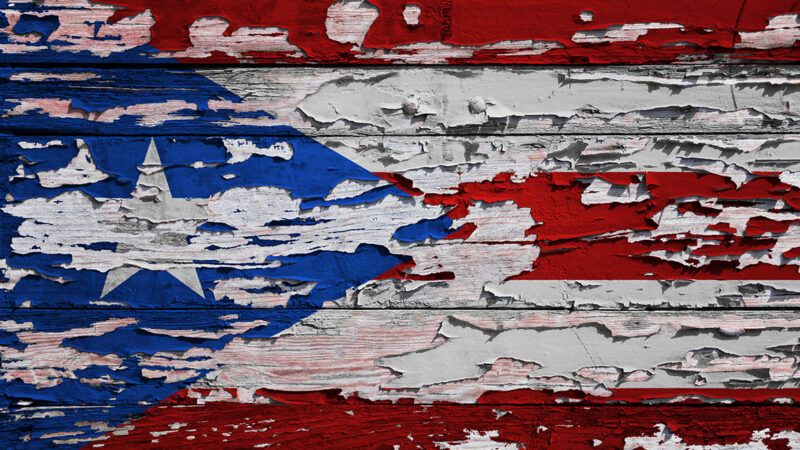Biden Chooses Cronyism Over Letting Puerto Rico Rebuild
The Jones Act shields the American shipping industry from foreign competition and harms both the environment and disadvantaged communities.

Not long after taking office, President Joe Biden released an executive order to fight climate change and called for evaluating the impact of environmental policies on the poor. Yet in a separate executive order, Biden affirmed his support for the 1920 Jones Act, a maritime law that harms both the environment and disadvantaged communities. It seems the residents of Hawaii, Puerto Rico, and Alaska are no match for an entrenched industry and union cronyism.
The Jones Act—technically the Merchant Marine Act of 1920—shields the American shipping industry from foreign competition by requiring that ships engaging in trade between multiple U.S. ports be made in America and owned and crewed by American citizens. Supporters say the Jones Act is necessary for national security, but research from the Cato Institute has shown the law's biggest impact is driving up consumer prices for many Americans by forcing isolated states and territories to import necessities from other countries.
The cost of complying with the Jones Act encourages American businesses to transport goods between U.S. states on trains and trucks. In Europe, 40 percent of freight is moved by sea. Within the United States, that share is only 2 percent. Ships generally require less energy per mile and therefore produce less pollution.
The Jones Act pushes freight transportation onto highways across America, thereby increasing pollution and congestion. Ironically, the law has even led to a decline in the number of ships America builds domestically.
In other words, a small number of Americans benefit financially from the Jones Act at the expense of the rest of us. "Supporting the Jones Act is in direct contradiction of the Biden administration's stated desire to both fight climate change and promote Puerto Rico's economic recovery," says Colin Grabow, a Cato policy analyst. "By dramatically raising the cost of domestic waterborne transport, the Jones Act discourages the use of this carbon-friendly means of transport while imposing a significant economic burden on an island that suffers from a painful 43 percent poverty rate."
On the campaign trail, Biden and Pete Buttigieg, who has since become secretary of transportation, promised better representation for Puerto Rico. But because of the Jones Act, shipping a container from the continental U.S. to the island territory can cost twice as much as sending the same container to a nearby island nation, where Jones Act rules don't apply. That's not a recipe for lifting Puerto Rico out of poverty or helping it recover from the devastation caused by Hurricane Maria in 2017.
Biden's embrace of this archaic law undercuts his economic, environmental, and transportation policy goals.


Show Comments (49)